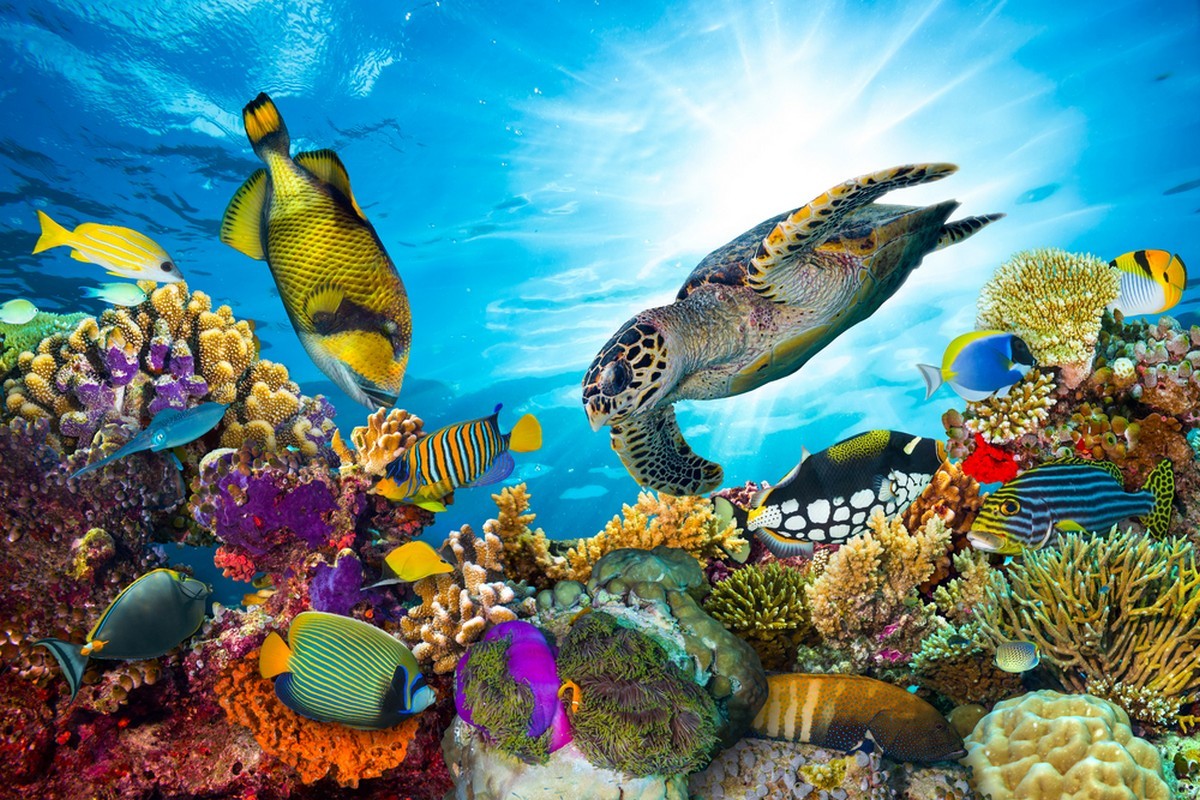14.3 Coral reefs
Coral reefs are ecosystems that are formed around the calcium carbonate exoskeletons emitted by coral invertebrates.
Coral reefs are found in the shores of the Indian and Pacific Oceans. They are also found on the shores of the tropical and subtropical zones, such as the shores of Australia, the Caribbean Sea, and the Red Sea.
Although coral reefs only cover approximatly 0,1 % of the total surface area of Earth's oceans, they are home to a majority of Earth's marine animal species.
Many species of fish, crustaceans, and invertebrates are only found in coral reef ecosystems. Because of their diversity, they are often called the ”rainforests of the oceans”.

Coral reefs provide food and shelter to many rare fish species. Coral reefs are also economically important due to the fishing and tourism they attract.
Coral are demanding invertebratic organisms that need plenty of warmth and light, as well as water that is rich in both salt and oxygen. If these conditions change, coral reefs disappear rather quickly.
The rising sea levels and increases in water temperature caused by climate change threaten the existence of coral reefs. As sea levels rise, less light will travel to the coral reefs on the bottom of the sea. This causes corals to grow slowly and to lose their beautiful colours. Marine pollution and gathering coral as souvenirs also threaten the existence of coral reef ecosystems.

Coral reefs are found in the shores of the Indian and Pacific Oceans. They are also found on the shores of the tropical and subtropical zones, such as the shores of Australia, the Caribbean Sea, and the Red Sea.
Although coral reefs only cover approximatly 0,1 % of the total surface area of Earth's oceans, they are home to a majority of Earth's marine animal species.
Many species of fish, crustaceans, and invertebrates are only found in coral reef ecosystems. Because of their diversity, they are often called the ”rainforests of the oceans”.

Coral reefs provide food and shelter to many rare fish species. Coral reefs are also economically important due to the fishing and tourism they attract.
Coral are demanding invertebratic organisms that need plenty of warmth and light, as well as water that is rich in both salt and oxygen. If these conditions change, coral reefs disappear rather quickly.
The rising sea levels and increases in water temperature caused by climate change threaten the existence of coral reefs. As sea levels rise, less light will travel to the coral reefs on the bottom of the sea. This causes corals to grow slowly and to lose their beautiful colours. Marine pollution and gathering coral as souvenirs also threaten the existence of coral reef ecosystems.
